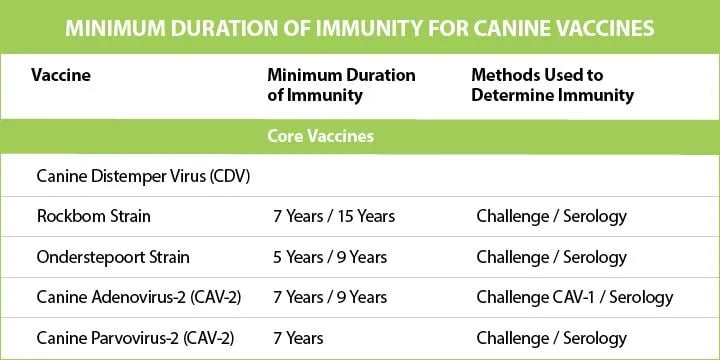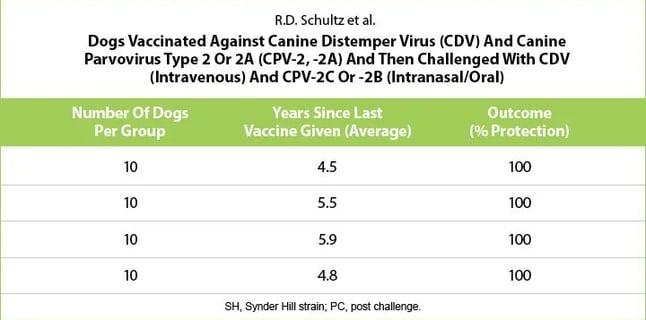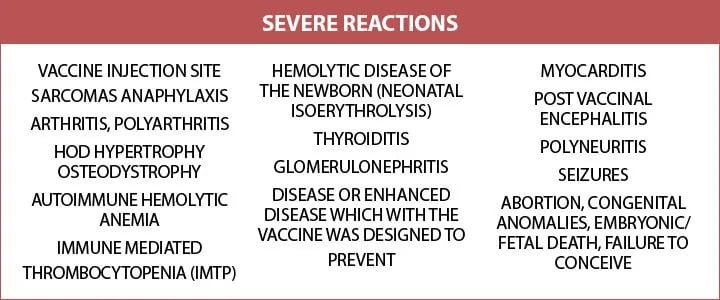What Every Vet (And Owner) Should Know About Dog Vaccines
https://www.dogsnaturallymagazine.com/what-every-vet-should-know-about-vaccines/
Are you confused about how often your dog needs vaccines? You’re not alone … your vet probably is too.
At Dogs Naturally vaccine frequency is the number one question we’re asked about. And it’s a good question …. because, as you’ll find out, most dogs are being vaccinated too often.
And that’s dangerous for your dog.
Core Vaccines For Dogs
Let’s look at core dog vaccines and what the research says about how often they should be given.
But before we do, you should first understand that the core vaccines for dogs (parvovirus, distemper and adenovirus) are not required by law. The only dog vaccine that’s legally required in all US states and some (not all) Canadian provinces is rabies.
So other than rabies, nobody can force you to vaccinate your dog with any other vaccine you don’t want to give. Period.
This is a decision best left up to you and your vet. But before you discuss vaccination with your vet … read on to make sure you know the duration of immunity of those vaccines – and the potentially lethal consequences of over-vaccinating.
Because most vets don’t know how long vaccines protect your dog. (Don’t worry, we’ve got a handout you can share with your vet at the bottom of this post).
Research Into Core Dog Vaccines
When it comes to immunity and duration of immunity for core dog vaccines, there’s one clear expert. Before his recent retirement, Dr Ronald D Schultz was one of three or four researchers looking at how long protection from veterinary vaccines actually lasts – and he did these studies over a 40 year period.
In fact, it’s Dr Schultz’s work that prompted the AAHA (American Animal Hospital Association) and AVMA (American Veterinary Medical Association) to re-evaluate their vaccine schedules.
Back in 2003, the American Animal Hospital Association Canine Vaccine Taskforce warned vets that:
“Misunderstanding, misinformation and the conservative nature of our profession have largely slowed adoption of protocols advocating decreased frequency of vaccination’; ‘Immunological memory provides durations of immunity for core infectious diseases that far exceed the traditional recommendations for annual vaccination.
“This is supported by a growing body of veterinary information as well-developed epidemiological vigilance in human medicine that indicates immunity induced by vaccination is extremely long lasting and, in most cases, lifelong.“
Dr Ronald Schultz And Dog Vaccine Guidelines
“The recommendation for annual re-vaccination is a practice that was officially started in 1978.” said Dr Schultz.
“This recommendation was made without any scientific validation of the need to booster immunity so frequently. In fact the presence of good humoral antibody levels blocks the anamnestic response to vaccine boosters just as maternal antibody blocks the response in some young animals.”
He added: “The patient receives no benefit and may be placed at serious risk when an unnecessary vaccine is given. Few or no scientific studies have demonstrated a need for cats or dogs to be revaccinated.”
Yet … despite the AAHA’s 2003 comments, they haven’t made any real progress in changing protocols. Their most recent (2017) recommendations are still very tentative:
“Following completion of the Initial Vaccination series and the initial booster dose, MLV and Recombinant Core vaccines will provide a sustained protective response lasting beyond 3 yr.”
This is a very conservative recommendation when you consider the results of the duration of immunity research Dr Schultz and his colleagues did on more than 1,000 dogs, for every major dog vaccine.
Two types of results are in the chart below: “challenge” (meaning exposure to the real virus) and serology (meaning antibody titer results) …













